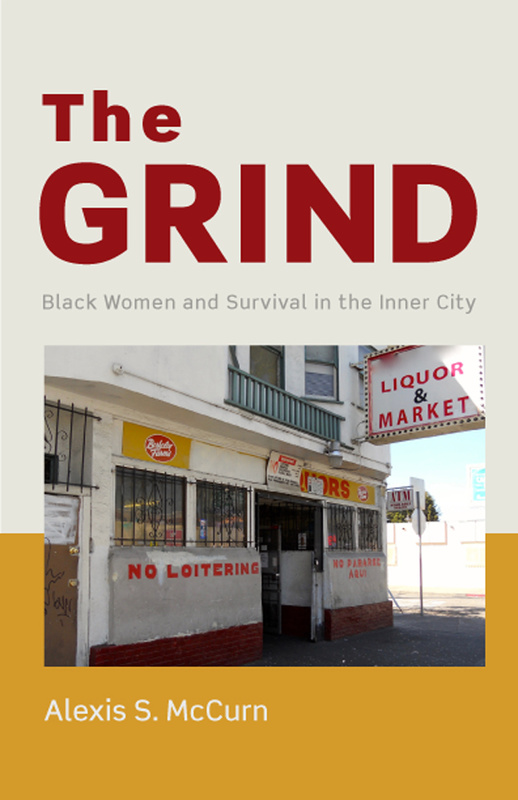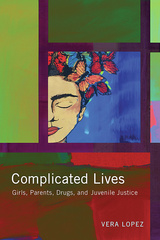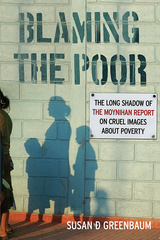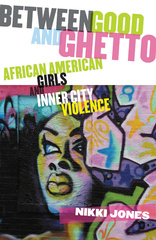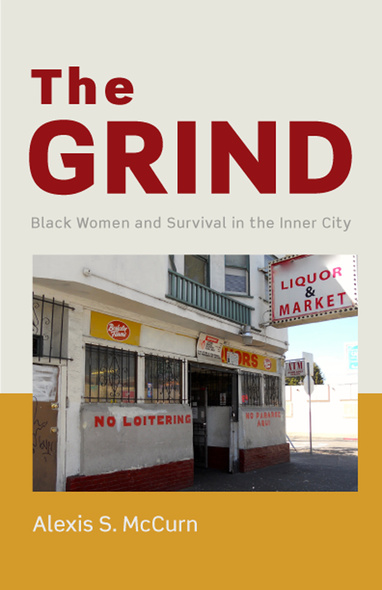
200 pages, 5 1/2 x 8 1/2
Paperback
Release Date:10 Sep 2018
ISBN:9780813585055
Hardcover
Release Date:10 Sep 2018
ISBN:9780813585062
Few scholars have explored the collective experiences of women living in the inner city and the innovative strategies they develop to navigate daily life in this setting. The Grind illustrates the lived experiences of poor African American women and the creative strategies they develop to manage these events and survive in a community commonly exposed to violence.
Alexis S. McCurn draws on nearly two years of naturalistic field research among adolescents and adults in Oakland, California to provide an ethnographic account of how black women accomplish the routine tasks necessary for basic survival in poor inner-city neighborhoods and how the intersections of race, gender, and class shape how black women interact with others in public. This book makes the case that the daily consequences of racialized poverty in the lives of African Americans cannot be fully understood without accounting for the personal and collective experiences of poor black women.
Alexis S. McCurn draws on nearly two years of naturalistic field research among adolescents and adults in Oakland, California to provide an ethnographic account of how black women accomplish the routine tasks necessary for basic survival in poor inner-city neighborhoods and how the intersections of race, gender, and class shape how black women interact with others in public. This book makes the case that the daily consequences of racialized poverty in the lives of African Americans cannot be fully understood without accounting for the personal and collective experiences of poor black women.
The Grind addresses a very important, understudied topic: black women’s experiences and position in 'distressed urban neighborhoods' and how these women negotiate these experiences. McCurn’s analysis is informative on a number of levels, and she gives voice to women whose voices are routinely silenced and misrepresented.
A stunning counter to whites’ racist framing of poor Black women! McCurn demonstrates how these courageous, strong-willed women must be constantly creative in their urban grinds for their families to endure. Using Black networks and community resources, they manage to survive conditions of systemic racism imposed on them by whites, for generations.
Alexis McCurn’s book is a must-read. She deftly captures the voices of inner city Black women as they describe their everyday experiences with microinteractional assaults, and frames their experiences within the larger contexts of race, gender, and violence.
Chronicle of Education's 'New Scholarly Books,' list' compiled by Nina C. Ayoub
A theoretically rich and groundbreaking study for students of ethnography, The Grind should be required reading for courses in qualitative methodology, urban sociology, and family sociology. Researchers examining structural impediments and individual/collective agency among members of distressed communities will find McCurn’s study invaluable.
This is a solid work of urban sociology and social anthropology.
All in all, The Grind is an exploration of struggle and survival that provides a critical examination of the ways in which biographical racism, racialized poverty, and gendered inequality have perpetuated cycles of discrimination and other forms of social and emotional injury that have largely been overlooked and unaddressed.
The Grind addresses a very important, understudied topic: black women’s experiences and position in 'distressed urban neighborhoods' and how these women negotiate these experiences. McCurn’s analysis is informative on a number of levels, and she gives voice to women whose voices are routinely silenced and misrepresented.
A stunning counter to whites’ racist framing of poor Black women! McCurn demonstrates how these courageous, strong-willed women must be constantly creative in their urban grinds for their families to endure. Using Black networks and community resources, they manage to survive conditions of systemic racism imposed on them by whites, for generations.
Alexis McCurn’s book is a must-read. She deftly captures the voices of inner city Black women as they describe their everyday experiences with microinteractional assaults, and frames their experiences within the larger contexts of race, gender, and violence.
Chronicle of Education's 'New Scholarly Books,' list' compiled by Nina C. Ayoub
A theoretically rich and groundbreaking study for students of ethnography, The Grind should be required reading for courses in qualitative methodology, urban sociology, and family sociology. Researchers examining structural impediments and individual/collective agency among members of distressed communities will find McCurn’s study invaluable.
This is a solid work of urban sociology and social anthropology.
All in all, The Grind is an exploration of struggle and survival that provides a critical examination of the ways in which biographical racism, racialized poverty, and gendered inequality have perpetuated cycles of discrimination and other forms of social and emotional injury that have largely been overlooked and unaddressed.
ALEXIS S. McCURN is an assistant professor of sociology at California State University, Dominguez Hills.
Introduction 1
1 “Grinding”: Living and Working in East Oakland 22
2 “It Happens All the Time”: Day-to-day Experiences with Microinteractional Assaults 55
3 “I Am Not a Prostitute”: How Young Black Women Challenge Sexual Harassment on the Street 86
4 “Keeping It Fresh”: Self-Representation and Challenging Controlling Images in the Inner City 122
Conclusion 153
Appendix: Field Research Methods in Urban Public Space 159
Acknowledgments 169
Notes 173
References 175
Index
1 “Grinding”: Living and Working in East Oakland 22
2 “It Happens All the Time”: Day-to-day Experiences with Microinteractional Assaults 55
3 “I Am Not a Prostitute”: How Young Black Women Challenge Sexual Harassment on the Street 86
4 “Keeping It Fresh”: Self-Representation and Challenging Controlling Images in the Inner City 122
Conclusion 153
Appendix: Field Research Methods in Urban Public Space 159
Acknowledgments 169
Notes 173
References 175
Index

